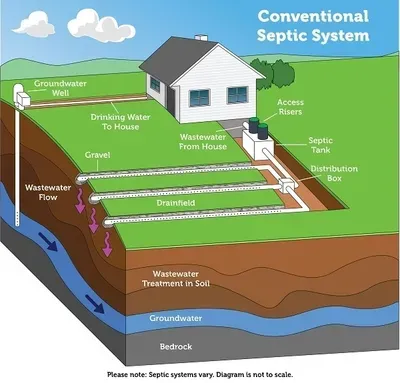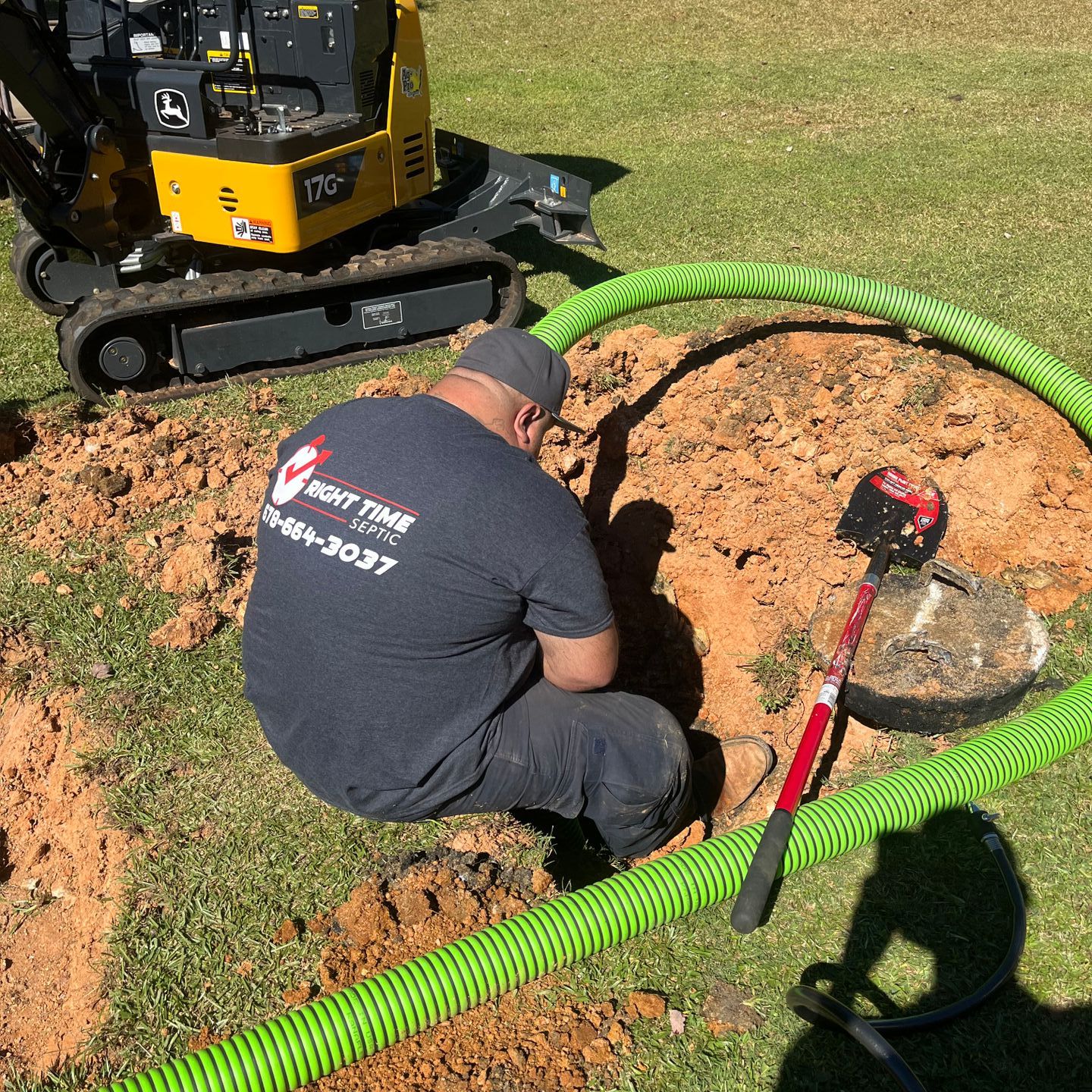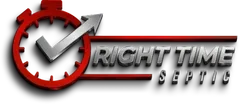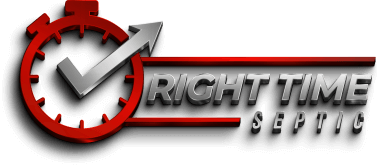Tips to Take Care of Your Septic System
Maintaining a home's septic system may seem like a daunting and stinky task, but it's really not. Being mindful of what you're doing inside the home will keep the system healthy.

Service we offer
What Is a Septic System?
If your home is not part of a city water and sewer system, your septic system is crucial because it treats all the wastewater that comes from your house, including the water from the bathrooms, kitchen and laundry room.
Septic systems typically feature a tank, where wastewater flows for treatment and the solids are separated from liquid waste. Microorganisms break down the organic matters in the wastewater. From there, the wastewater moves into the drain or leach field, which consists of perforated pipes. The wastewater will either evaporate or drain into the soil.
Get Familiar With Your Septic System
Good maintenance starts with understanding how your septic tank works, what type of system it is and where it’s located.
Because state laws require a permit for septic system installation, your county should have a record of the permit and a map of the tank’s layout and location on the property plat. You might be able to find visual clues like sewer covers, or by checking the direction the sewer pipes, located in the basement, leads out of the house. If you need help locating the tank you can always give us call.
Have It Pumped Routinely
The average household septic system should be pumped (have solids removed) every three to five years.
When you call Right Time Septic, we will also inspect for leaks and examine the sludge layers in your septic tank. Remember to save ALL maintenance records on work performed on your septic system. They will come in handy should problems arise, or when you sell your home.

Spread Your Washing Machine Usage Throughout the Week/ Replace Old Fixtures and Appliances
You may think having a designated “laundry day,” when you wash all your clothes and perhaps even run your dishwasher, will be a time saver.
But it puts a lot of stress on your septic system. You need to give your septic system time to treat the wastewater or you could overload the system and flood your drain field. Instead, opt to do a full load (to ensure you’re not wasting water) a couple of days a week. In addition upgrading your home’s water appliances and fixtures can provide a cost-effective upgrade and also dramatically reduce your water consumption, leading to lower water bills and less work for your septic system. Here is great artice
How New Fixtures and Water-Efficient Appliances Can Benefit Your Home
Protect Your Drain Field
Proper maintenance of your drain field starts with closely monitoring water usage and what goes into your septic system, as noted above.
Never drive or park vehicles over your drain field. Make sure gutters and sump pumps empty water far away from the drain field. Avoid planting trees and shrubs close to the drain field, as roots could interfere with pipes.
Be Careful With Cleaning Chemicals
Various cleaning products homeowners use can harm the good bacteria in a septic system. Avoid using chemicals like bleach when washing clothes. If you absolutely have to, use a small amount.
Do not use drain cleaners, which, aside from killing the good bacteria, can damage the tank itself. If a plunger doesn’t clear a clog, try a toilet drain snake, which also works on clogged kitchen and bathroom sinks. Toilet bowl cleaners are also bad for your septic as they typically contain bleach. Avoid antibacterial soaps and disinfectants that contain quaternary ammonia as well.
Fortunately there are lots of natural or plant based cleaning product alternatives to these harsh chemicals.
Think About What You Pour Down the Kitchen Sink Drain
We pour many things down the kitchen sink that can wreak havoc on a septic system. Never wash things like coffee grounds, eggshells, medication, produce stickers, flour, etc. down the sink drain. All can clog pipes or block screens.
Also, do not discard any type of oil like cooking oil or paint, grease and fat because it will clog your septic system. Even dairy products like milk, cream and butter are bad to send down the drain. It’s hard for dairy to break down in a septic tank because of the lack of oxygen. When you use a garbage disposal with a septic tank, the ground-up food particles add to the layer of solids deposited on the bottom of your tank. That’s why homeowners need to be extra vigilant that the only material they put down a garbage disposal is biodegradable food.




